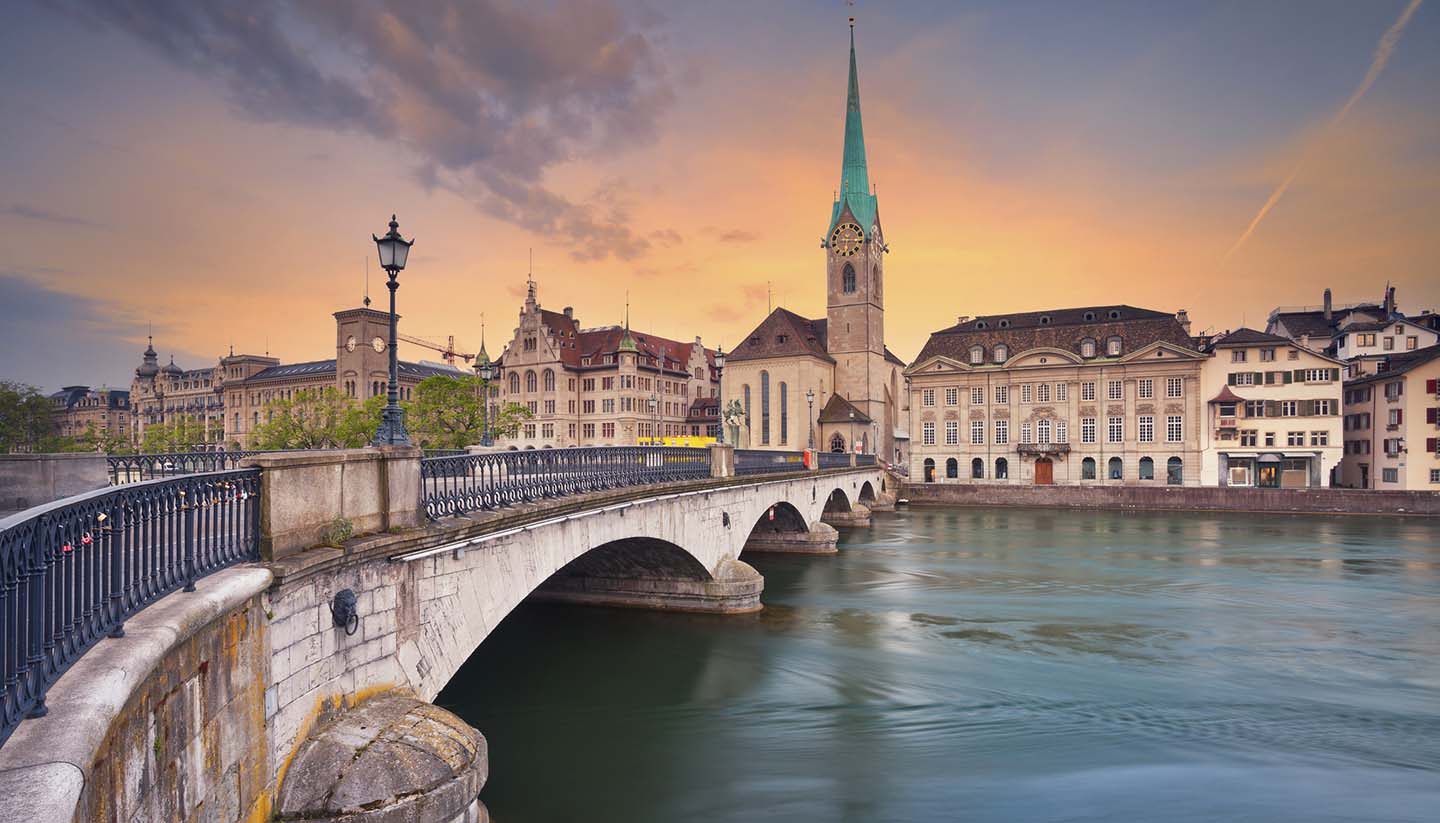Zurich History
Zurich's origins date back to 15BC, when the Roman town of Turicum was established to oversee trade passing through the Alps. Despite the settlement being continuously inhabited, it wasn't until the 9th century that the first mention of the Teutonic town of Zurich appeared.
Ruled by a grandson of Emperor Charlemagne (known as Louis the German), it swiftly expanded and gained a reputation for creating peerless ecclesiastical buildings in the process.
By the 10th century, the town had acquired the status of a city, and went on to become part of the Holy Roman Empire in 1215. While an imperial city, it was turned into a Duchy, although, unusually, it was ruled by the local Fraumünster (an abbess) who assumed similar powers to a Duchess.
But when the Swiss Protestant Reformation arrived in the 16th century, ecclesiastical rule came to an end – as did most Catholic worship. Instead, Catholicism was swapped for a new religion, trade, with the city becoming increasingly wealthy as part of the Swiss Confederacy. By the 18th century, Zurich became so devoted to trade that it was all but ruled by its guilds. They had the power to levy taxes, among other things.
With the French invasion of 1798, the power of the Burghers came to an end, and power was first taken by Napoleon and then by citizens following the French withdrawal. Burghers or no burghers, the city flourished, expanding rapidly during the 19th and 20th centuries.
Although both World Wars largely passed it by (in no small part due to Switzerland’s much vaunted neutrality), Zurich did change substantially during the first half of the 20th century.
Much of this was due to further expansion to include many of its surrounding villages but also because of a boom in the banking industry. Today, Zurich remains a financial and banking hub as well as one of Europe’s wealthiest cities.
Did you know?
• Influential German-language writer Gottfried Keller was a resident of Zurich.
• The Reformation in Zurich was inspired by the 1522 ‘Affair of the Sausages’ in which the pastor of Grossmünster argued in favour of meat consumption during Lent.
• Psychiatrist Carl Jung lived and died in Zurich.



